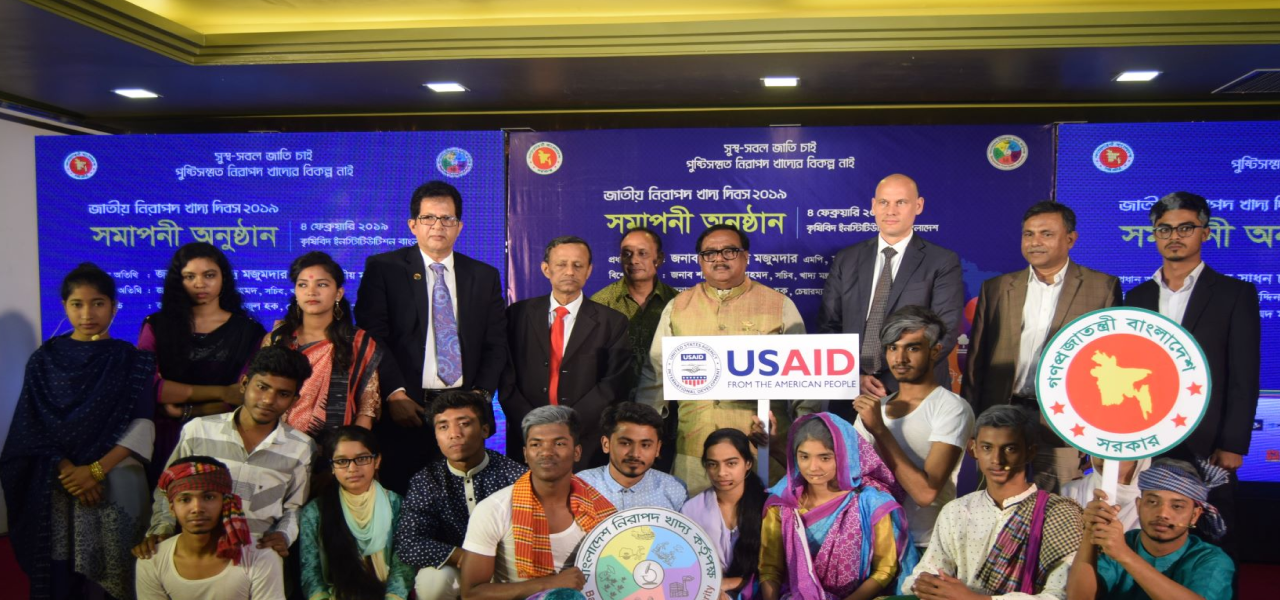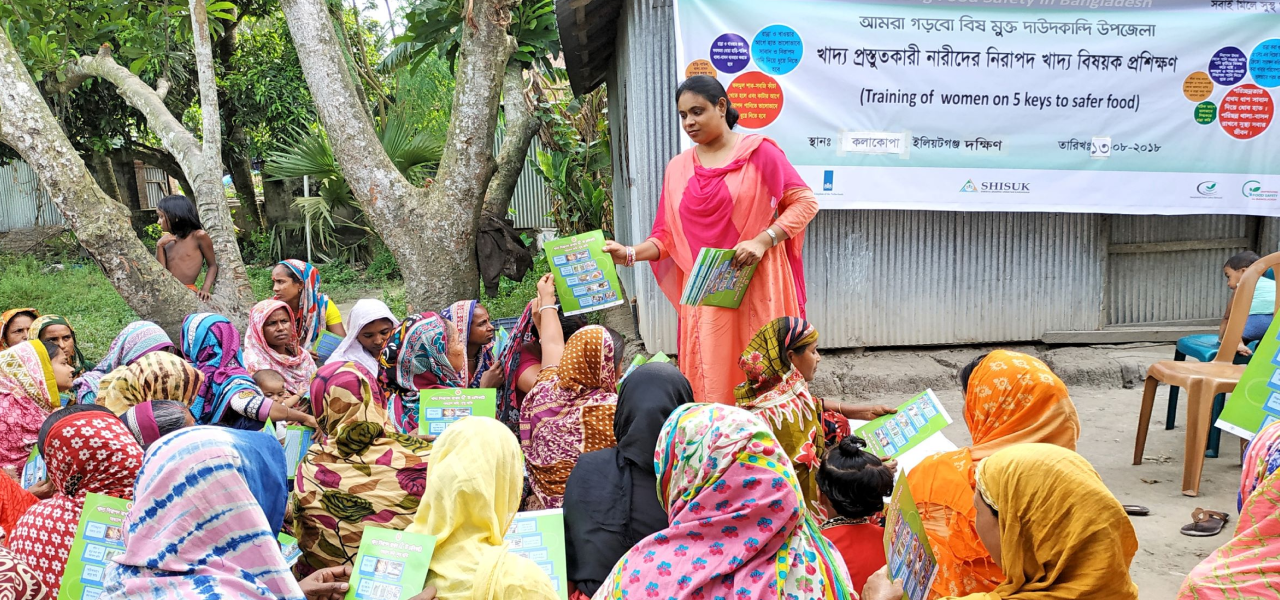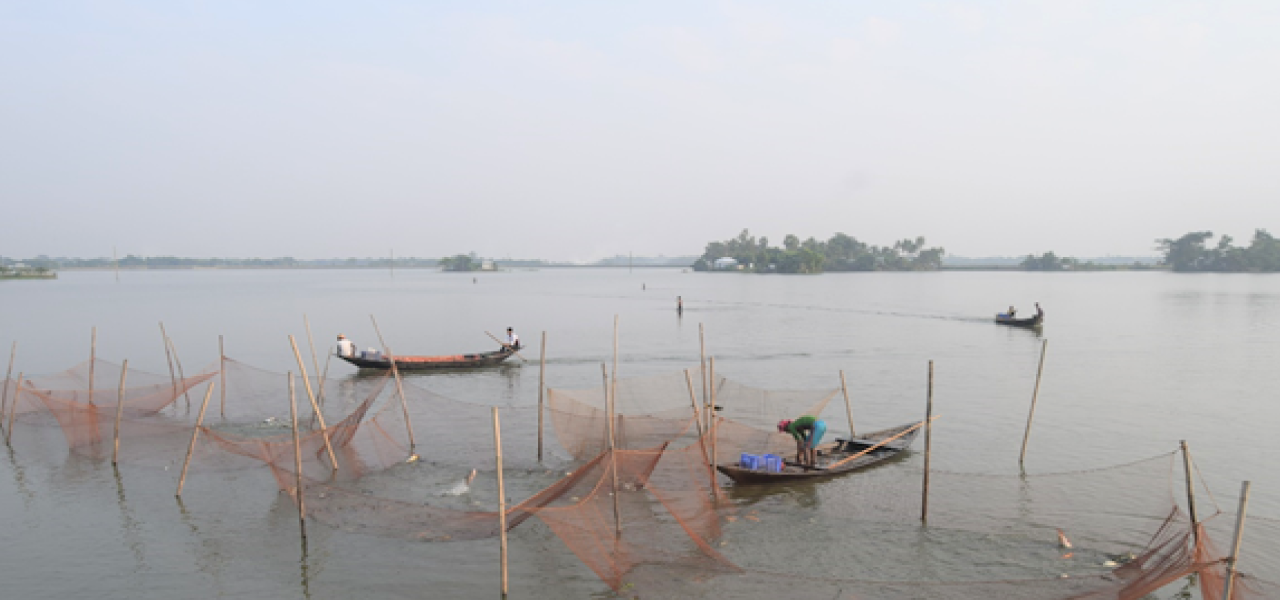Who We Are
SHISUK, a national NGO has been working on community development and sustainable agriculture since its inception in 1994. Daudkandi is one of the best practice site, where in 1997 SHISUK pioneered Community based collective enterprise initiative on floodplain Aquaculture (popularly known as Daudkandi model). SHISUK has awarded National Gold medal by The Ministry of Fisheries and Livestock in 1999 as the pioneer of the Community Enterprise model for floodplain. The model has selected as one of the SAARC Best Practice for livelihood development in 2007. With the support of Bangladesh Government (KGF) SHISUK is now implementing adaptive trial in other floodplains of the country like Tidal floodplains in the coast and depressed area in North of Bangladesh.
SHISUK is implementing program with the support of FAO Bangladesh to promote Food Safety Culture in Bangladesh since 2009. The key focus of the intervention in Daudkandi is to ensure food safety of the aquaculture and agriculture production in that area.
Youtube
WHAT WE DO

Your donation helps us fund our campaigns for children, rural women and communities. Any amount helps!
Donate
Your donation helps us fund our campaigns for children, rural women and communities. Any amount helps!
Sign Petition
Your donation helps us fund our campaigns for children, rural women and communities. Any amount helps!
Subscribe
Your donation helps us fund our campaigns for children, rural women and communities. Any amount helps!
Join Our EventsThis workshop is organized by APEX (Asian People’s Exchange for Food Sovereignty and Agroecology) and hosted by Vikalpani Women's Federation , bringing together representatives of women organizations from Cambodia, Philippines, Bangladesh, and Sri Lanka.
The workshop aimed to develop a common research framework on “The Impact of Highly Hazardous Pesticides on Women and Women-Led Agroecological Alternatives.”
Through discussions and collaborative planning and field visit experience , they have worked to:
✅ Highlight the gendered impact of hazardous pesticides on women’s health and livelihoods.
✅ Identified a common methodology to see the impact the Alternative Agricultural practices
✅ Build a shared regional strategy to advocate for policy change and grassroots action.
This collective effort marks an important step toward amplifying women’s voices in agroecology and advancing a food-sovereign Asia. 🌱
Agroecology is not just a concept—it's a climate solution. 🌱🔥
At the COP30 side event on November 12, SHISUK Executive Director Sakiul Millat Morshed highlighted a critical truth:
👉 Agroecology offers a real, scalable, and people-centered pathway to climate justice and food sovereignty in Asia.
Despite growing recognition, agroecology remains far from mainstream across many Asian countries. That’s why SHISUK, together with global partners, is pushing for:
✔️ Stronger advocacy
✔️ Increased financing
✔️ Policy coherence
✔️ Integration in NDCs and national adaptation plans
Because people-led agroecology is essential for a just and sustainable future.
SHISUK is proud to raise the voice of Bangladeshi communities on global platforms like COP30—ensuring grassroots perspectives shape climate solutions for the world. ✊🌾🌏
About the Exhibition
Agro Tech Bangladesh is a major international platform that brings together agricultural producers, technology providers, agro-machinery companies, food processing industries, seed companies, and development institutions. The 2025 exhibition hosted hundreds of exhibitors and delegates from countries such as Malaysia, Indonesia, India, China, Hong Kong, USA, Canada, Brazil, Italy, Germany, Spain, France, Türkiye, and Thailand.
Alongside international companies, major Bangladeshi public institutions such as BARD, BRDB, Rural Development Academy (RDA), Bogura, and the Cooperative Department also showcased their rural development innovations and community-based enterprises.
North Bengal Honey Community Enterprise at Agro Tech 2025
North Bengal Honey Community Enterprise is a unique community-based initiative consisting of over 300 beekeepers from the northern region of Bangladesh. Supported by SHISUK, the initiative aims to promote sustainable beekeeping, enhance rural livelihoods, and strengthen the market access of natural honey producers.
The Rural Development Academy (RDA), Bogura played a crucial role by training beekeepers, improving production techniques, and sponsoring “Moubazar”, the first-ever weekly honey market in Bangladesh.
At the exhibition stall, the enterprise showcased three varieties of their finest, naturally produced honey:
Blackseed Honey
Litchi Flower Honey
Mixed Flower Honey
Visitors—including traders, development professionals, and international delegates—expressed strong interest in the quality, purity, and traceability of the honey.
Opportunities and Impacts
Participation in Agro Tech Bangladesh 2025 opened new doors for North Bengal Honey Community Enterprise:
1. Market Expansion
International participation created opportunities for future export prospects and partnerships with global buyers seeking natural and organic honey.
2. Knowledge and Technology Exchange
Beekeepers and enterprise representatives were able to interact with international technology providers, gaining insights into advanced honey processing, packaging, and quality certification systems.
3. Brand Visibility
Showcasing at a major national and global platform significantly increased the visibility of Bangladesh’s native honey and highlighted the community-driven model supported by SHISUK.
4. Networking and Collaboration
Discussions with government representatives, NGOs, researchers, and agro-business leaders provided valuable ideas for improving production standards, ensuring compliance with market requirements, and enhancing value addition.
Conclusion
The participation of North Bengal Honey Community Enterprise in the 13th Agro Tech Bangladesh 2025 marks a significant milestone in its journey to transform community-based beekeeping into a sustainable, market-driven rural enterprise. The event not only promoted high-quality Bangladeshi honey but also reinforced SHISUK’s commitment to empowering rural producers through technology, skills, and market access.
Key Outcomes: 1. Strengthened coordination and communication among network members.
2. Renewed participation of inactive NGOs and interest from new organizations. 3. Agreement on monthly online coordination meetings. 4. Commitment to expand agroecology practices and community enterprise initiatives
















